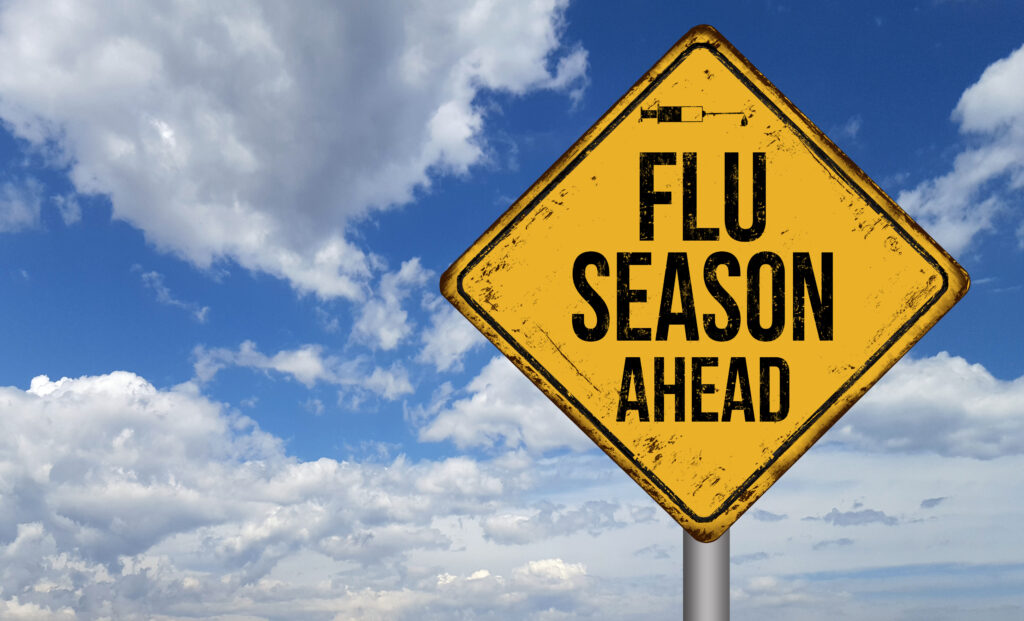Every year, as flu season approaches, the big question surfaces again: Should you get the flu shot? While some people swear by the annual vaccine, others remain skeptical. Dr. Terri leans toward a more cautious approach, prioritizing individualized health over blanket recommendations. So, let’s break it down—who should consider the flu shot, who might want to skip it, and what science actually says about its effectiveness.
When to Get the Flu Shot?
Timing is everything when it comes to flu shots. According to FDA.gov, “The CDC recommends that people ages 6 months and older get a flu vaccine, ideally by the end of October. Even if you wait until after October, the vaccine will still be beneficial and provide protection.” That means if you decide to get vaccinated, earlier in the season is better—but even late vaccination can offer some protection.
Does the Flu Shot Make You Sick?
This is one of the most common concerns. Many people report feeling unwell after receiving the vaccine, leading to the belief that the flu shot can actually cause the flu. However, the CDC clarifies, “While a flu vaccine cannot give you flu illness, there are different side effects that may be associated with getting a flu shot or a nasal spray flu vaccine.”
These side effects can include:
- Soreness or redness at the injection site
- Low-grade fever
- Fatigue
- Muscle aches
While these symptoms can mimic mild flu symptoms, they are short-lived and not the same as having the flu itself.
How Long Does the Flu Shot Last?
Many people assume that getting the flu shot provides year-round protection, but the immunity it offers is temporary. Research shows that protection begins to wane after about six months, meaning that if you get vaccinated too early in the season, you may have less protection by the time peak flu season hits in late winter.
This is why some experts suggest waiting until late October or early November to maximize immunity when flu cases spike.
Who Should Consider Getting the Flu Shot?
For certain groups, the flu shot can be beneficial and even life-saving. The CDC recommends vaccination for:
- Children under 5 years old
- Adults over 65
- Pregnant women
- Individuals with chronic conditions (such as asthma, diabetes, or heart disease)
- Healthcare workers and caregivers
For these populations, the flu can lead to severe complications, making vaccination a valuable preventative measure.
Who Might Want to Skip the Flu Shot?
On the other hand, not everyone benefits equally from flu vaccination. You may want to reconsider if:
- You’ve had a severe allergic reaction to a previous flu shot
- You have a history of Guillain-Barré Syndrome (a rare neurological condition linked to vaccines)
- You prefer to focus on natural immunity and other preventative measures
Dr. Terri emphasizes that it’s always best to consult a trusted healthcare provider to weigh personal risks and benefits.
Alternative Ways to Stay Healthy During Flu Season
Whether or not you choose to get the flu shot, there are proactive steps you can take to stay healthy:
- Boost your immune system: Eat a nutrient-dense diet rich in vitamins C and D, zinc, and antioxidants.
- Practice good hygiene: Wash hands frequently and avoid touching your face.
- Stay hydrated: Proper hydration supports immune function and overall health.
- Get quality sleep: Sleep deprivation weakens the immune system, making you more susceptible to illness.
- Reduce stress: Chronic stress can suppress immune function, so engage in relaxation techniques like meditation or deep breathing.
- Exercise regularly: Physical activity helps strengthen the immune system and improves overall health.
- Consider natural remedies: Some people turn to elderberry syrup, echinacea, or garlic to support immune function.
The Role of Herd Immunity
Another factor to consider when deciding whether to get the flu shot is herd immunity. When enough people are vaccinated, the spread of the virus slows down, reducing the risk of outbreaks. This can be especially important for protecting those who cannot receive the vaccine due to medical conditions.
However, herd immunity for the flu is complicated because flu viruses constantly mutate, making it harder to achieve long-lasting community-wide protection.
Does the Flu Shot Work?
The effectiveness of the flu shot varies from year to year. Scientists must predict which flu strains will be most common months in advance, and sometimes those predictions miss the mark. Studies show that the flu shot generally reduces the risk of getting the flu by 40-60% when well-matched to circulating strains. While it may not be foolproof, the vaccine can still lessen the severity of symptoms if you do get sick.
Final Thoughts
The decision to get the flu shot is a personal one, and there’s no one-size-fits-all answer. While some individuals benefit greatly from vaccination, others may choose to focus on lifestyle changes and immune support instead. What’s most important is making an informed choice that aligns with your health goals and risk factors.
If you’re unsure whether the flu shot is right for you, consider speaking with a knowledgeable provider who can guide you based on your individual needs. At EVEXIAS, we believe in empowering you with the information and options to make the best decision for your health.
Take charge of your well-being and discuss your flu prevention strategy with an EVEXIAS provider today.





